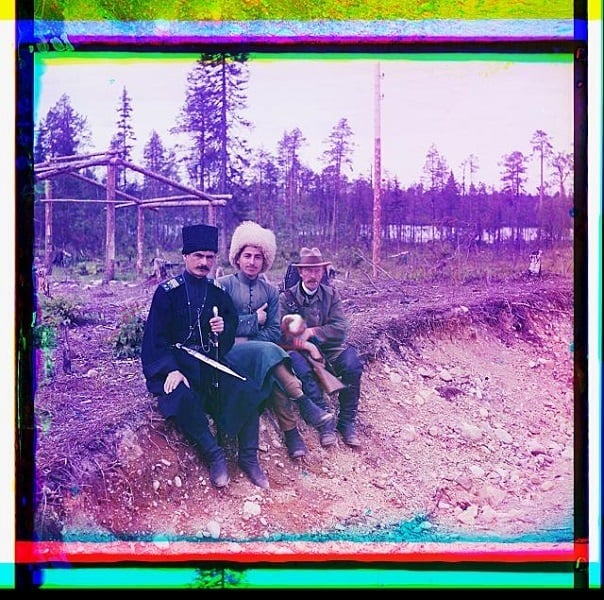
Sergei Mikhailovich Prokudin-Gorskii seated with two men in Murmansk. Sergei Mikhailovich Prokudin-Gorskii Collection/Library of Congress
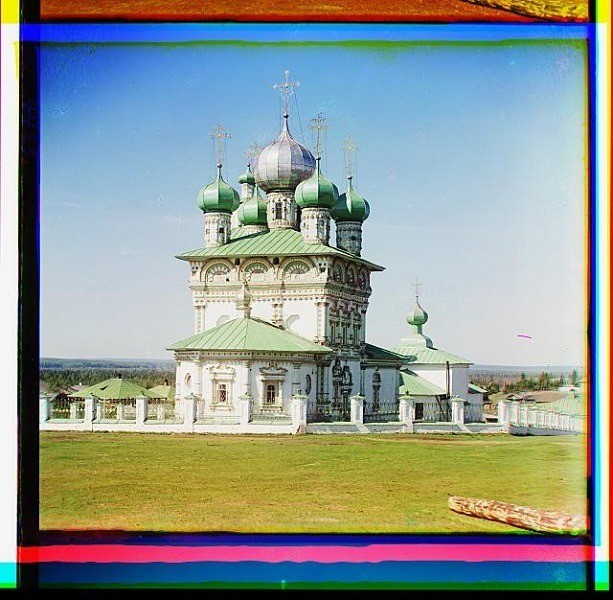
The church of Saint Nicholas the Wonder Worker in a work settlement called Nyrob. Sergei Mikhailovich Prokudin-Gorskii Collection/Library of Congress
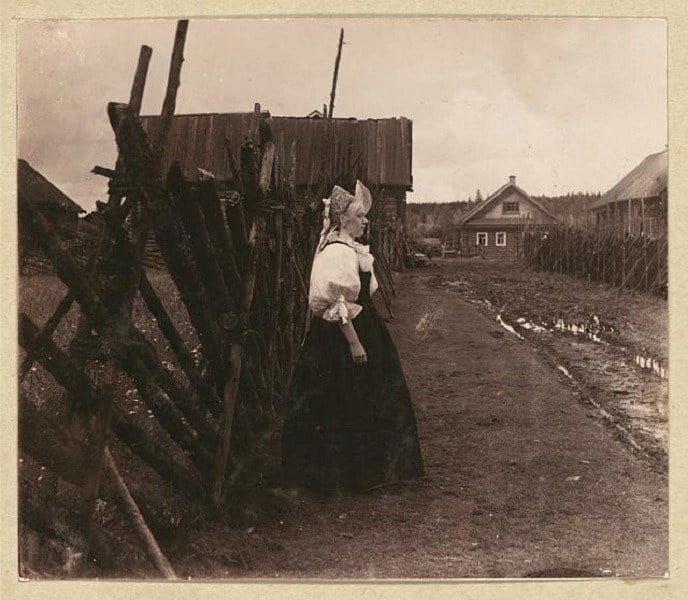
A woman in peasant dress. Sergei Mikhailovich Prokudin-Gorskii Collection/Library of Congress
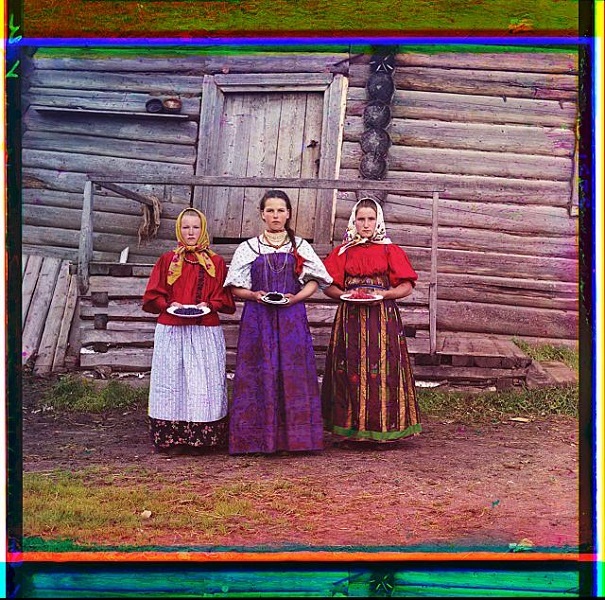
Three peasant girls offer berries outside of their "izba," a traditional log house.Sergei Mikhailovich Prokudin-Gorskii Collection/Library of Congress
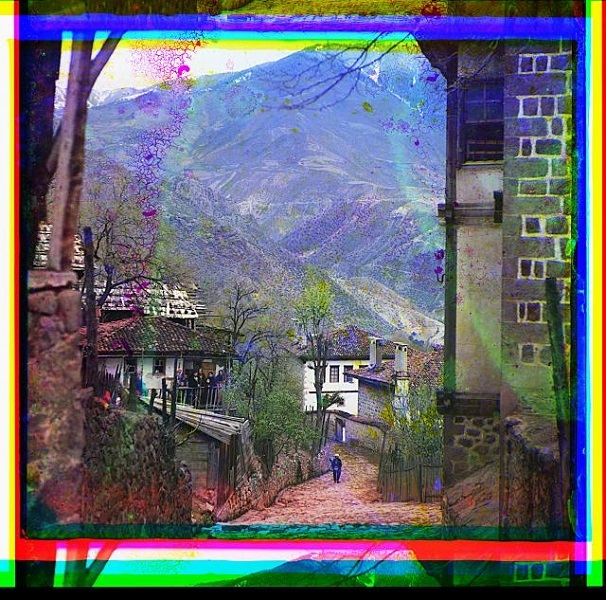
A view of the mountainside village of Artvin, in Turkey, which Russia occupied until 1917. Sergei Mikhailovich Prokudin-Gorskii Collection/Library of Congress
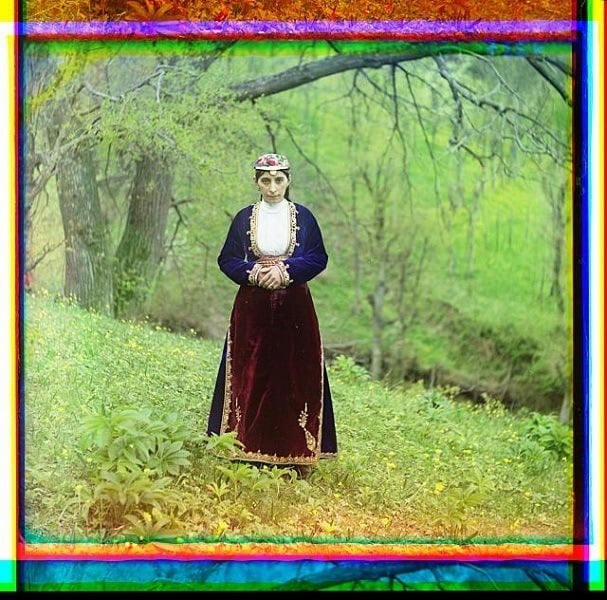
An Armenian woman in holiday attire in Artvin.Sergei Mikhailovich Prokudin-Gorskii Collection/Library of Congress
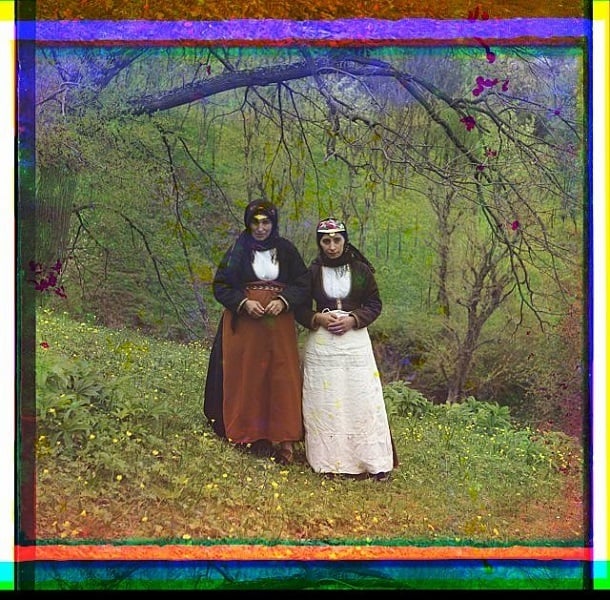
Two Catholic Armenian women from Artvin in traditional dress. Sergei Mikhailovich Prokudin-Gorskii Collection/Library of Congress
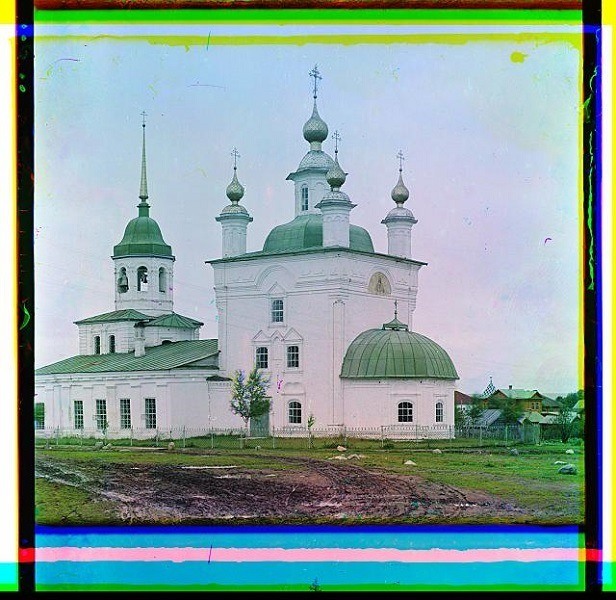
Church of Saints Peter and Paul in Belozersk, Russia. Sergei Mikhailovich Prokudin-Gorskii Collection/Library of Congress
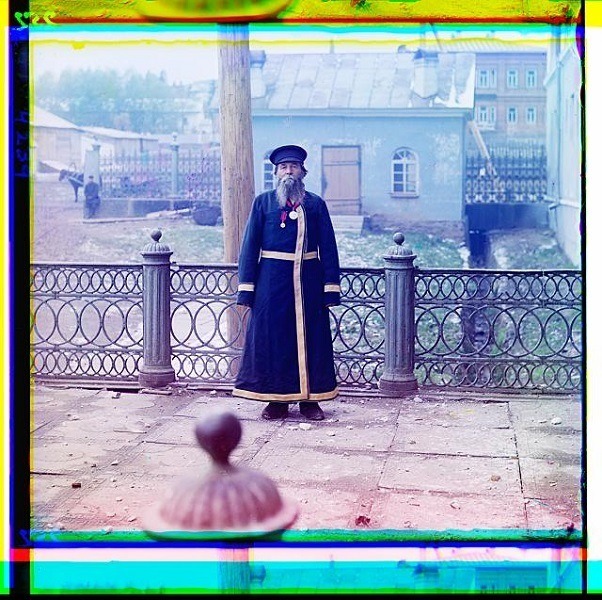
Andreĭ Petrov Kalganov, the foreman at a factory in the town of Zlatoust.Sergei Mikhailovich Prokudin-Gorskii Collection/Library of Congress
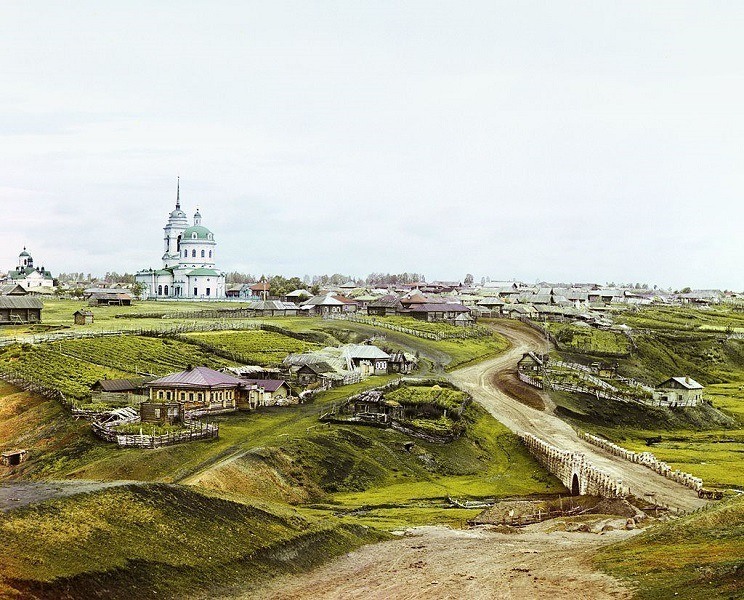
The village of Kolchedan, in the Ural Mountains
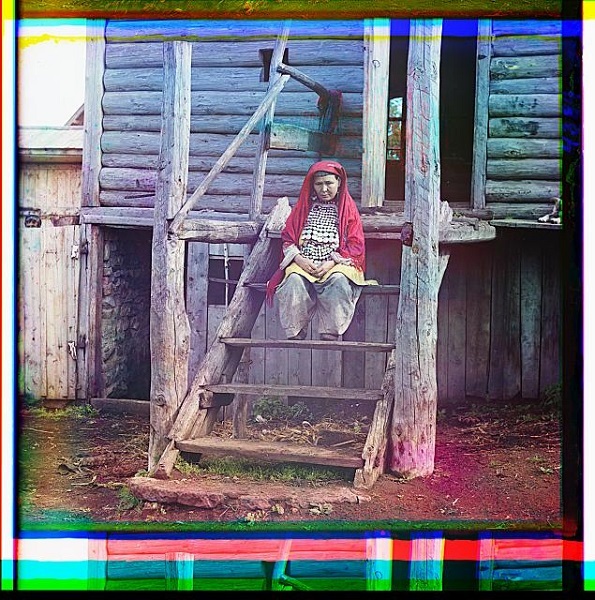
A Bashkir woman in traditional costume. The Bashkir are the indigenous people of the Ural Mountains. Sergei Mikhailovich Prokudin-Gorskii Collection/Library of Congress
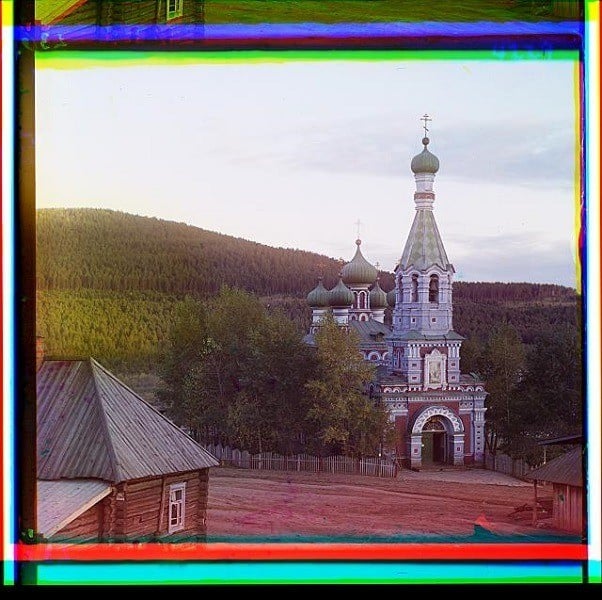
A church in the town of Vetluga. Sergei Mikhailovich Prokudin-Gorskii Collection/Library of Congress
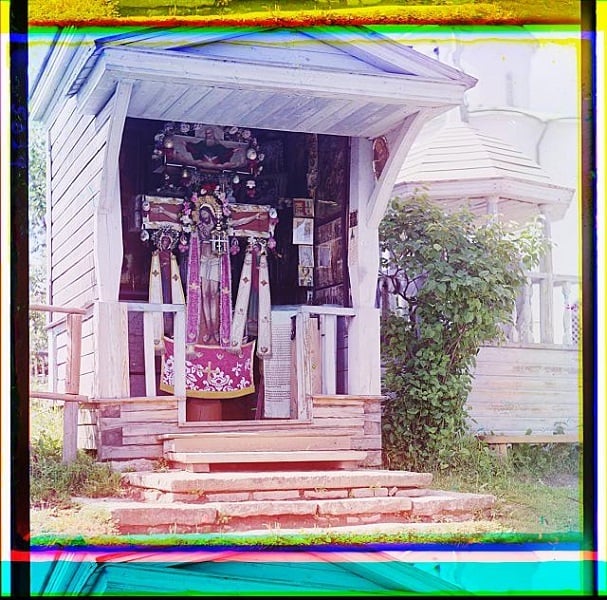
A cross in front of a monastery for women in Staraya Ladoga.Sergei Mikhailovich Prokudin-Gorskii Collection/Library of Congress
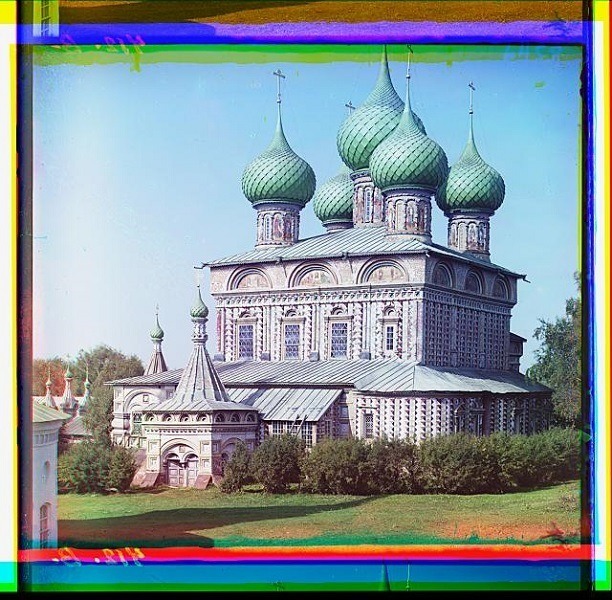
Church of the Resurrection in Kostroma. Sergei Mikhailovich Prokudin-Gorskii Collection/Library of Congress
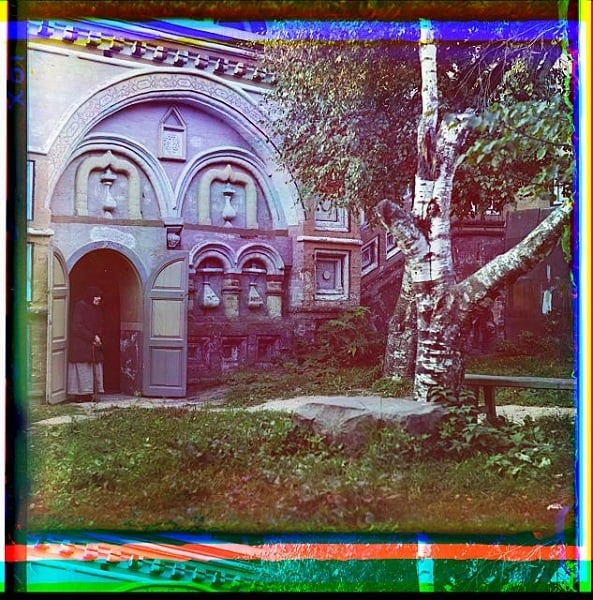
The courtyard of the Church of the Resurrection.Sergei Mikhailovich Prokudin-Gorskii Collection/Library of Congress
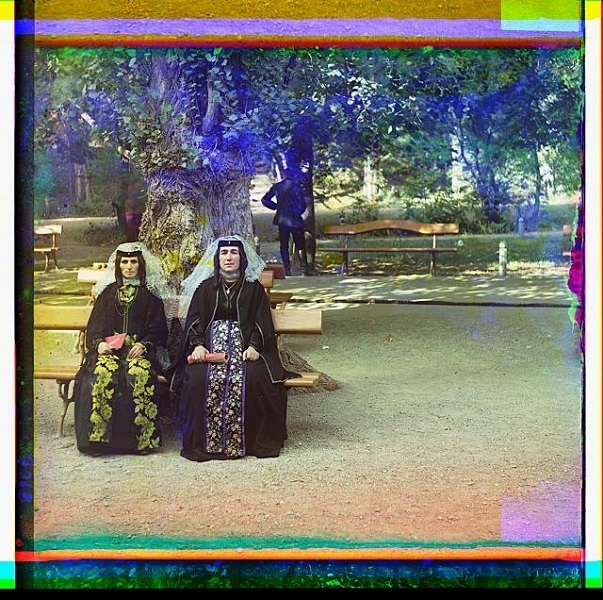
Georgian women seated in a park in holiday dress.Sergei Mikhailovich Prokudin-Gorskii Collection/Library of Congress
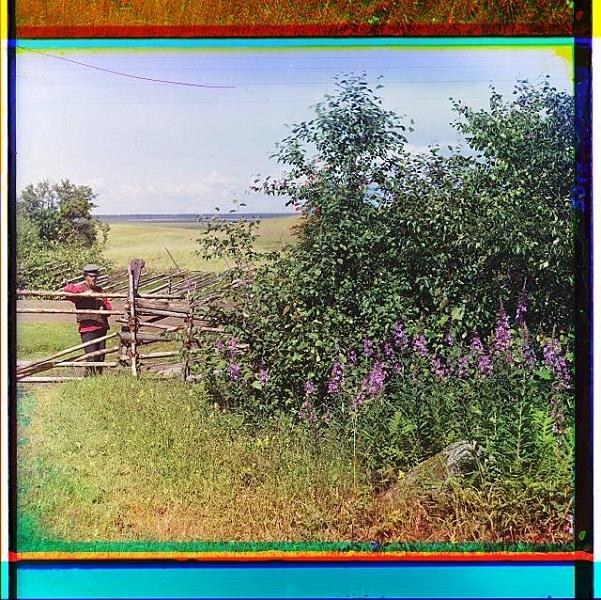
A man leans on a fence in the small village of Paltoga.Sergei Mikhailovich Prokudin-Gorskii Collection/Library of Congress
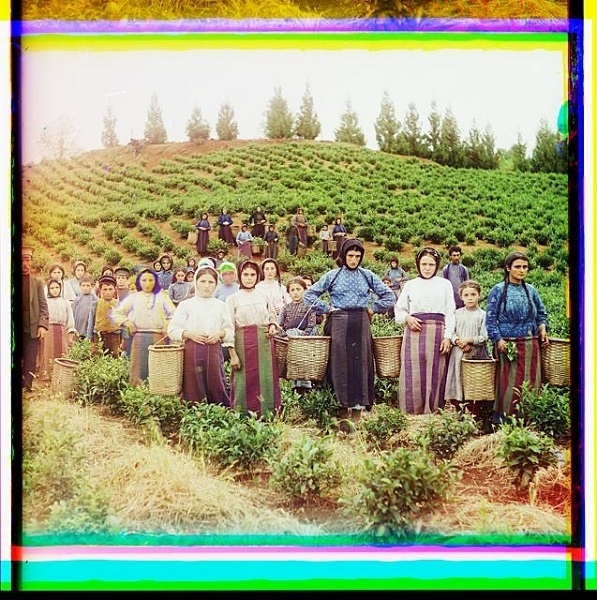
A group of Greek women harvesting tea in Chakva, Georgia. Sergei Mikhailovich Prokudin-Gorskii Collection/Library of Congress
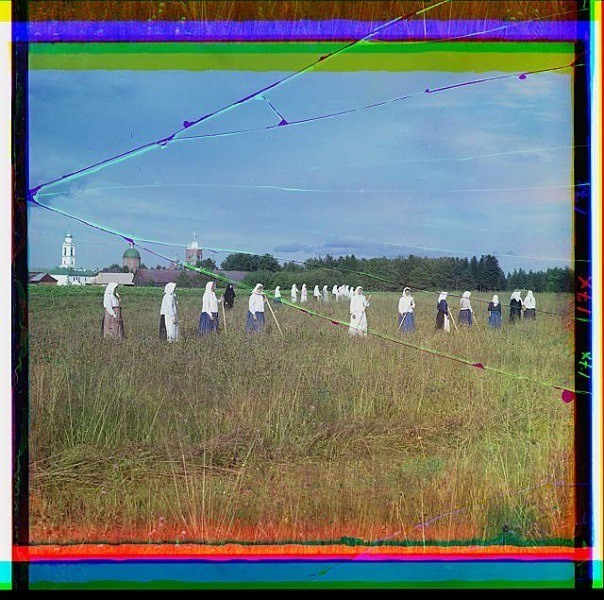
Women rake hay in a field outside of the Leushinskii Monastery.Sergei Mikhailovich Prokudin-Gorskii Collection/Library of Congress
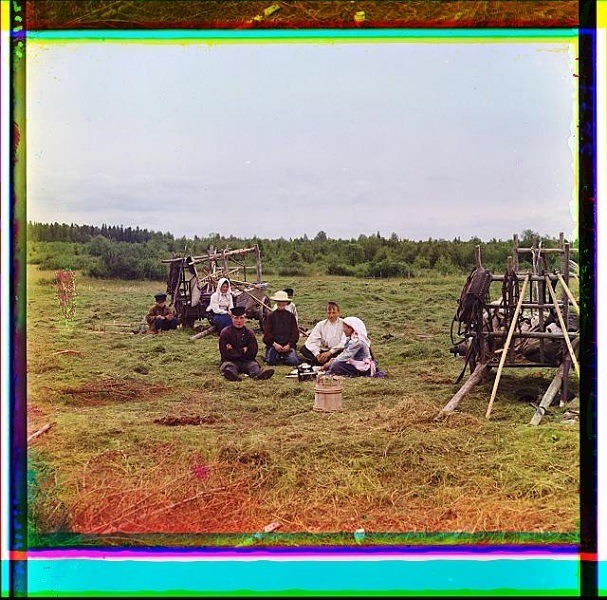
Peasants working in a hay field near what was then called the Mariinsk Canal System, which links the Volga river with the Baltic sea. Sergei Mikhailovich Prokudin-Gorskii Collection/Library of Congress
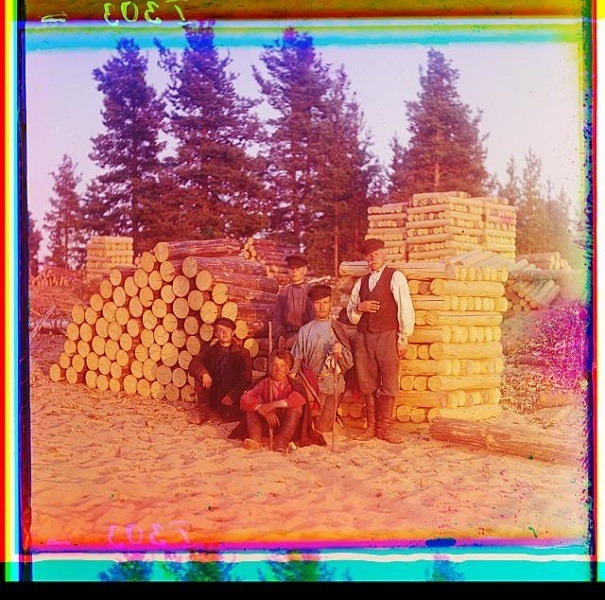
Woodcutters on the Svir River.Sergei Mikhailovich Prokudin-Gorskii Collection/Library of Congress
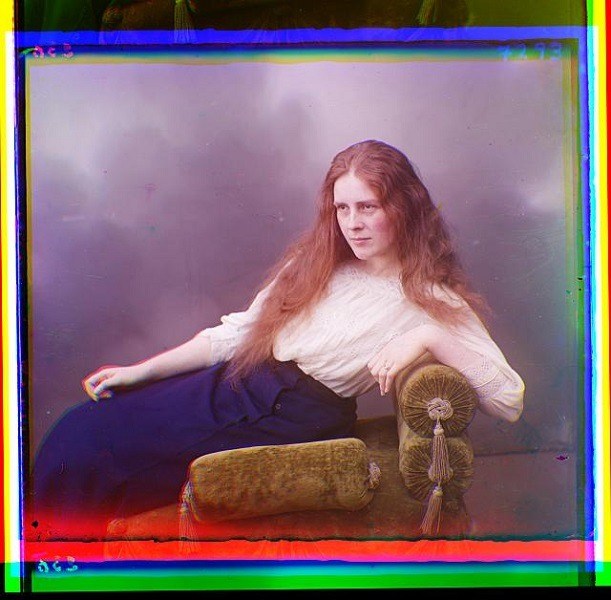
Portrait of an unknown woman. Sergei Mikhailovich Prokudin-Gorskii Collection/Library of Congress
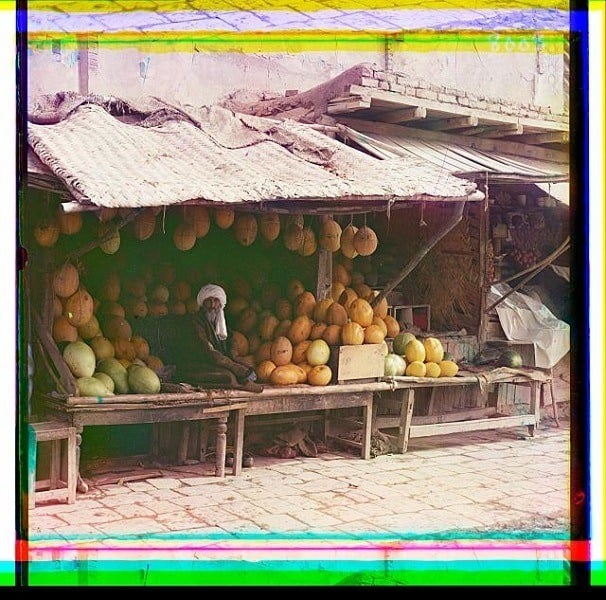
A melon vendor in Samarkand, Uzbekistan. Sergei Mikhailovich Prokudin-Gorskii Collection/Library of Congress
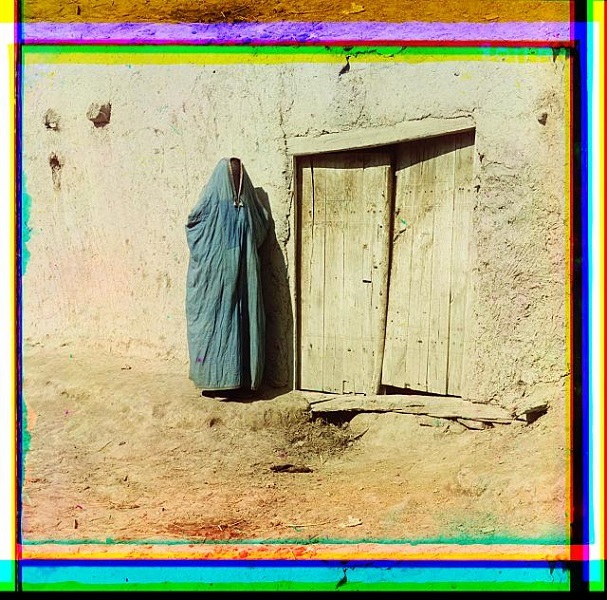
A woman in Samarkand practicing Purdah, a Muslim tradition in which women seclude themselves from the rest of the community by living separately and covering themselves in a full-body veil.Sergei Mikhailovich Prokudin-Gorskii Collection/Library of Congress
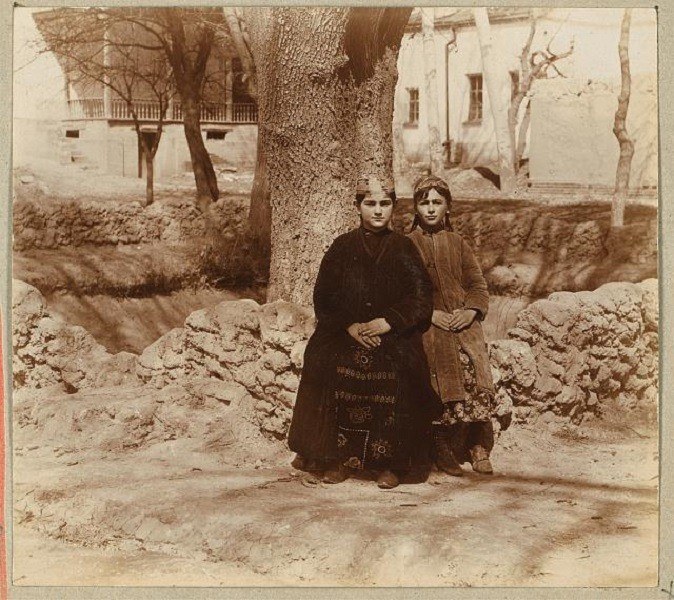
Two Jewish girls in Samarkand. Sergei Mikhailovich Prokudin-Gorskii Collection/Library of Congress
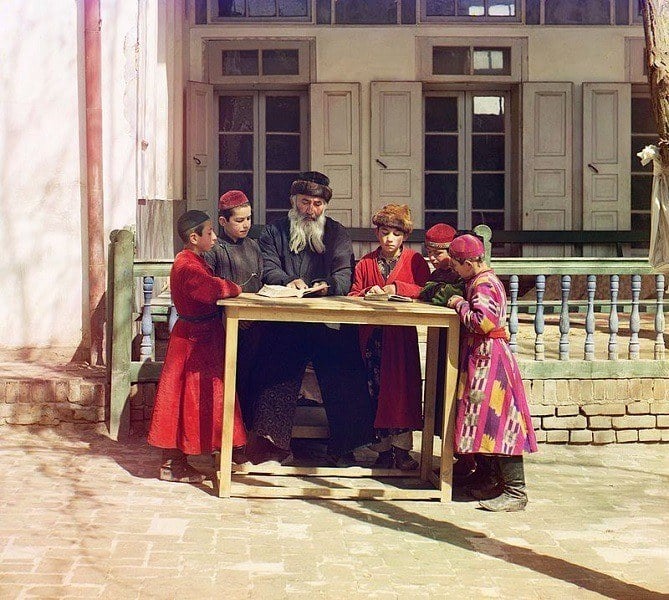
A group of Jewish children with their teacher in Samarkand.
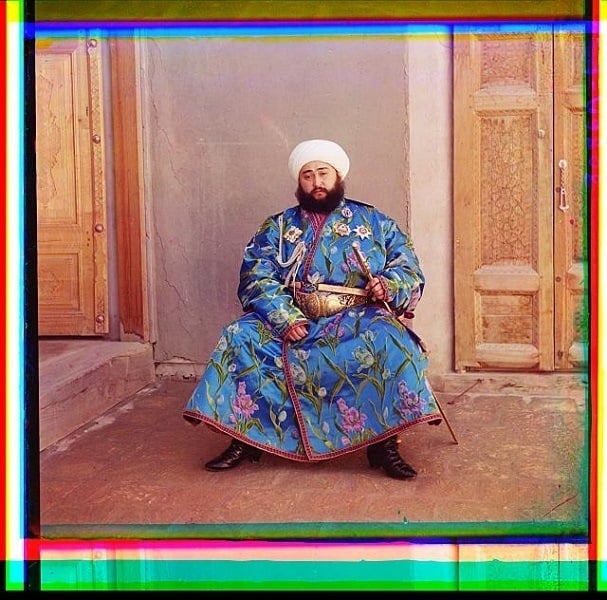
The Emir, a traditional Muslim chief, of Bukhara, Uzbekistan.Sergei Mikhailovich Prokudin-Gorskii Collection/Library of Congress
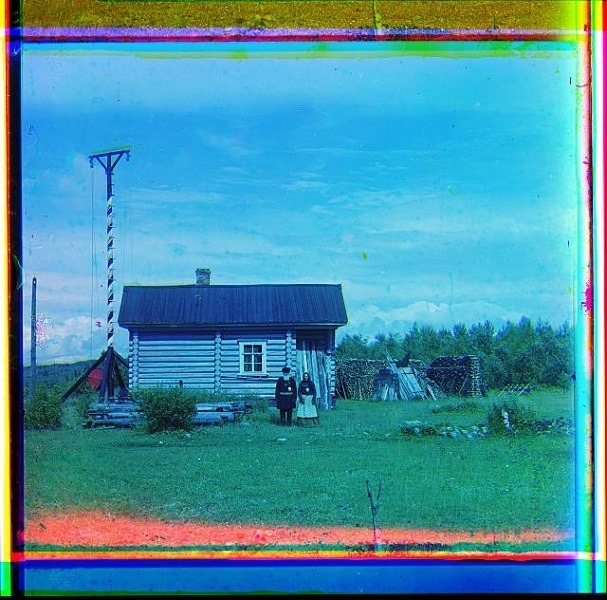
A home near the Sigovets rapids.Sergei Mikhailovich Prokudin-Gorskii Collection/Library of Congress
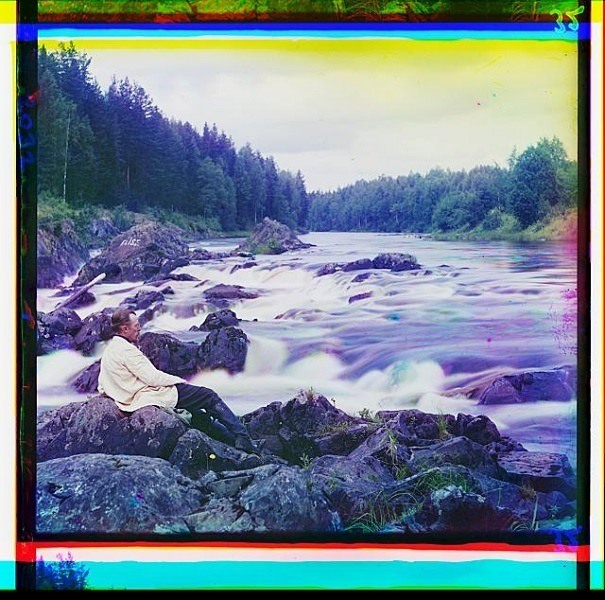
A self-portrait of Prokudin-Gorskii posing by the Suna River.Sergei Mikhailovich Prokudin-Gorskii Collection/Library of Congress
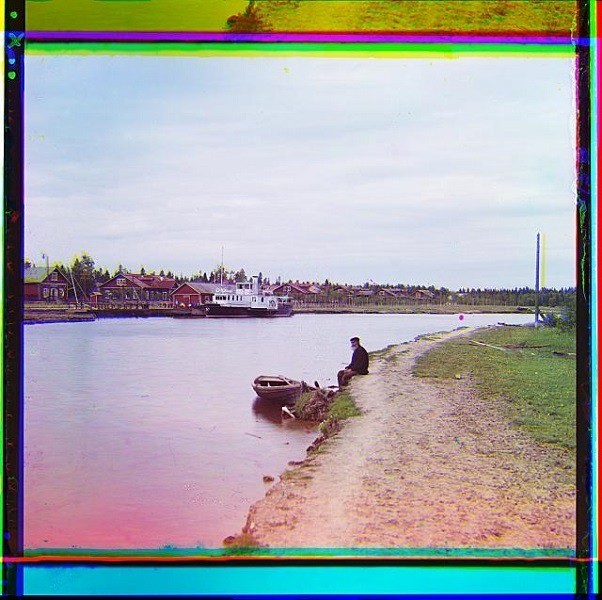
A view of the Kovzha River.Sergei Mikhailovich Prokudin-Gorskii Collection/Library of Congress
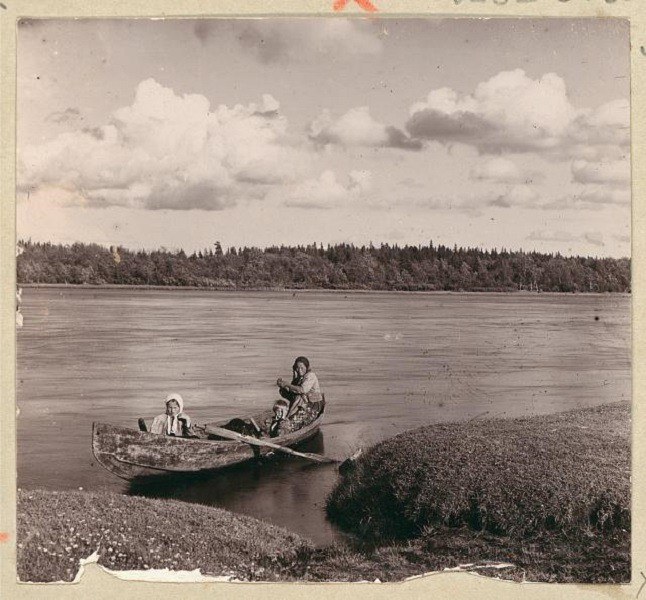
A family on the Svir River. Sergei Mikhailovich Prokudin-Gorskii Collection/Library of Congress
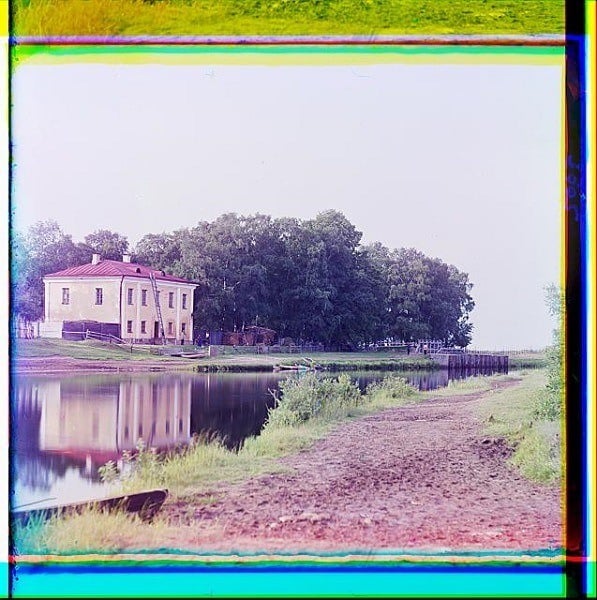
A guardhouse on the Volga-Baltic Waterway. Sergei Mikhailovich Prokudin-Gorskii Collection/Library of Congress
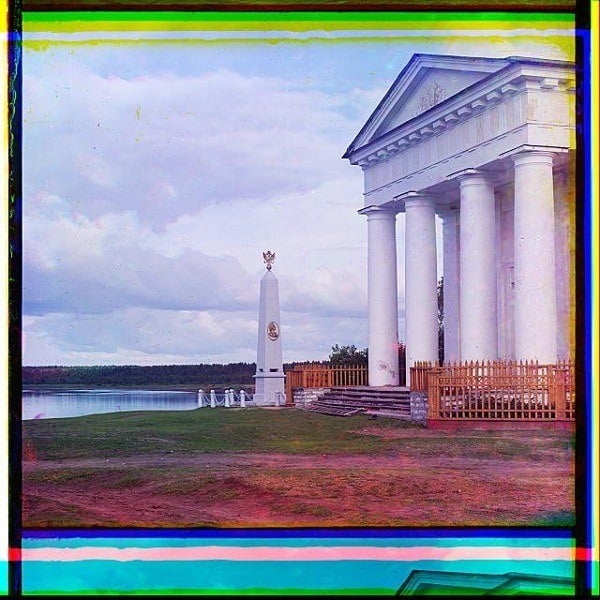
A monument to Emperor Peter the Great in the city of Lodeynoye Pole.Sergei Mikhailovich Prokudin-Gorskii Collection/Library of Congress
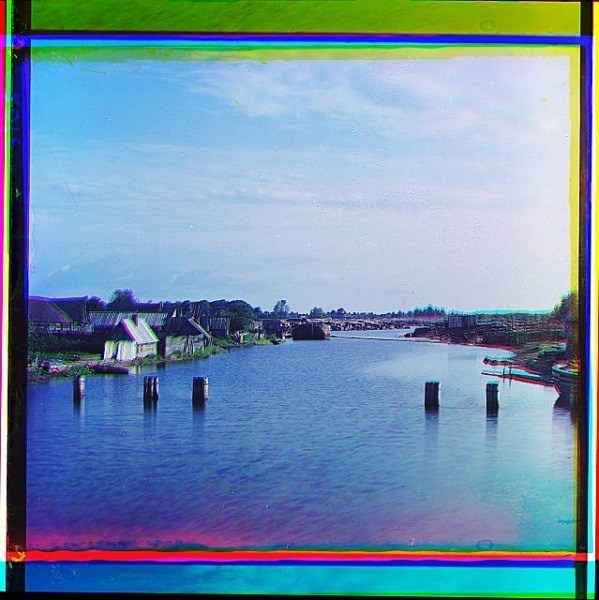
A view of the village of Naziya from the river. Sergei Mikhailovich Prokudin-Gorskii Collection/Library of Congress
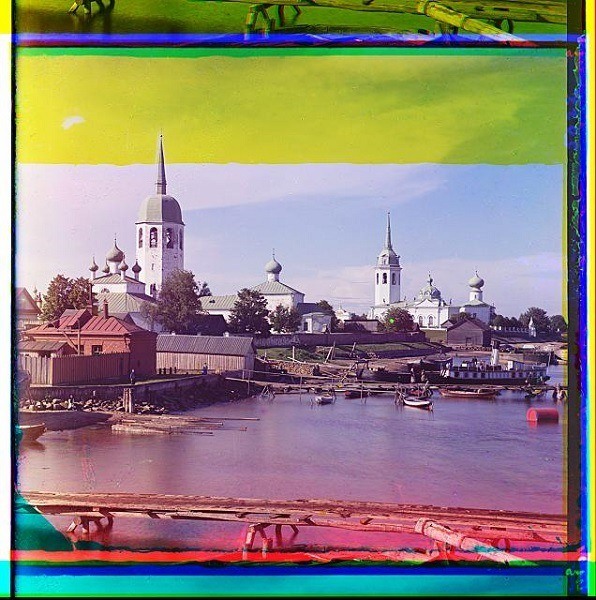
The town of Novaya Ladoga.Sergei Mikhailovich Prokudin-Gorskii Collection/Library of Congress
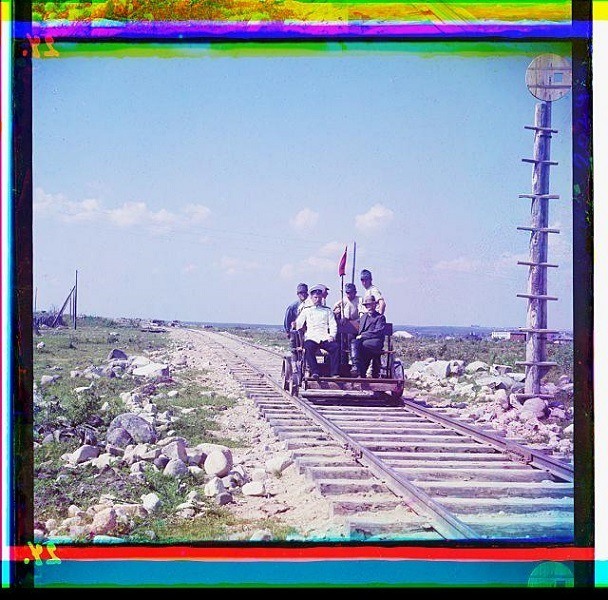
Prokudin-Gorskii rides a railway handcar along with some workers on the Murmansk railway.Sergei Mikhailovich Prokudin-Gorskii Collection/Library of Congress
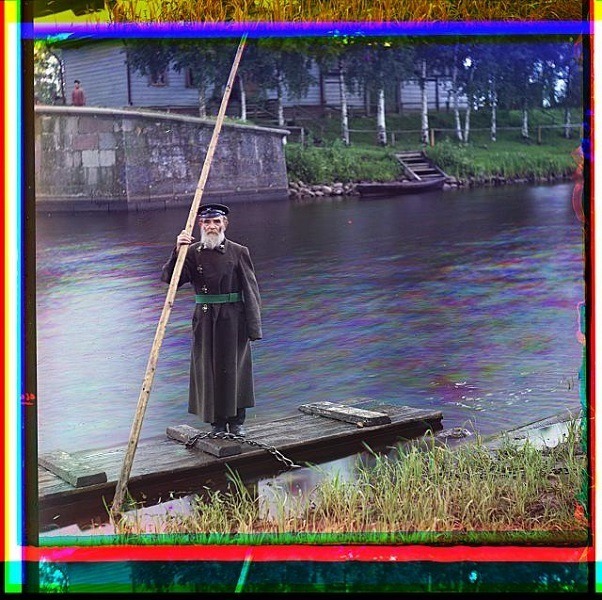
Pinkhus Karlinskii, 84, manning the floodgate in Chernigov, Ukraine, a post he held for 66 years. Sergei Mikhailovich Prokudin-Gorskii Collection/Library of Congress
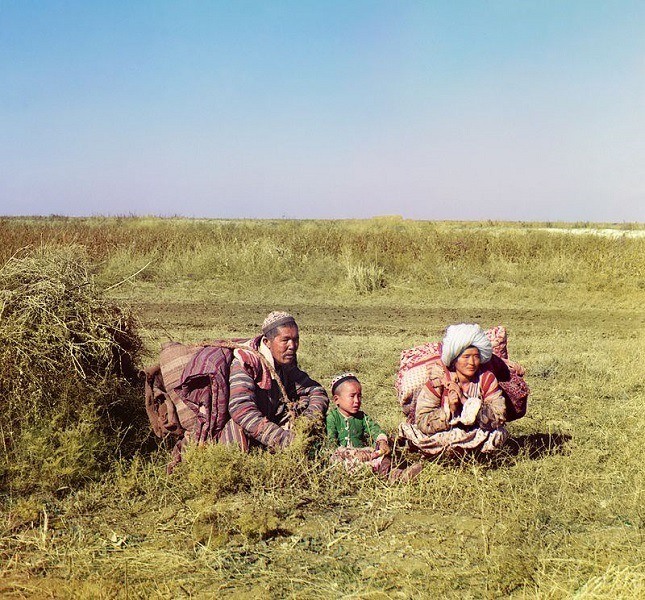
A nomadic Kyrgyz family in Uzbekistan.
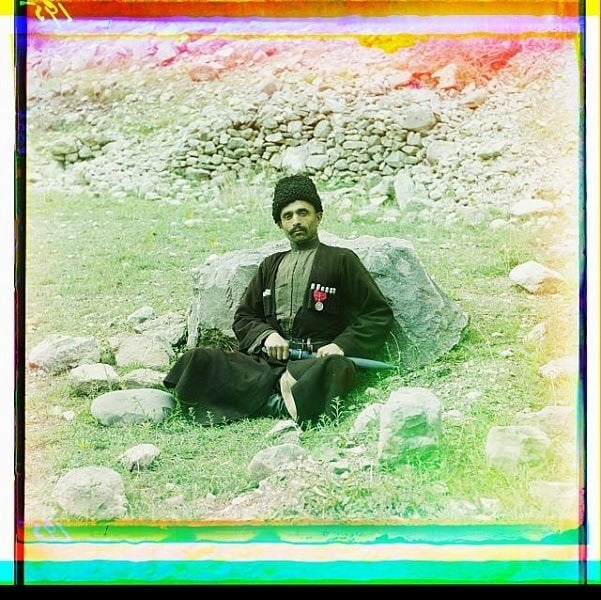
A Sunni Muslim man in the Dagestan region of Russia. Sergei Mikhailovich Prokudin-Gorskii Collection/Library of Congress
From 1909 to 1915, photographer and chemist Sergei Mikhailovich Prokudin-Gorskii traveled around the Russian Empire, documenting life in its most rural corners. He photographed farms, small villages, and churches, capturing the daily lives of the people he encountered along the way.
And Gorskii didn't travel for the sake of travel, or photography, itself: In this ambitious project, Gorskii pioneered color photography techniques he hoped would educate Russian school children on the history, culture, and modernization of their homeland.
The resulting photos provide a haunting record of an empire on the brink of revolution.
Next, check out 45 haunting photos taken during the last days of the Romanovs, just before the revolution began.